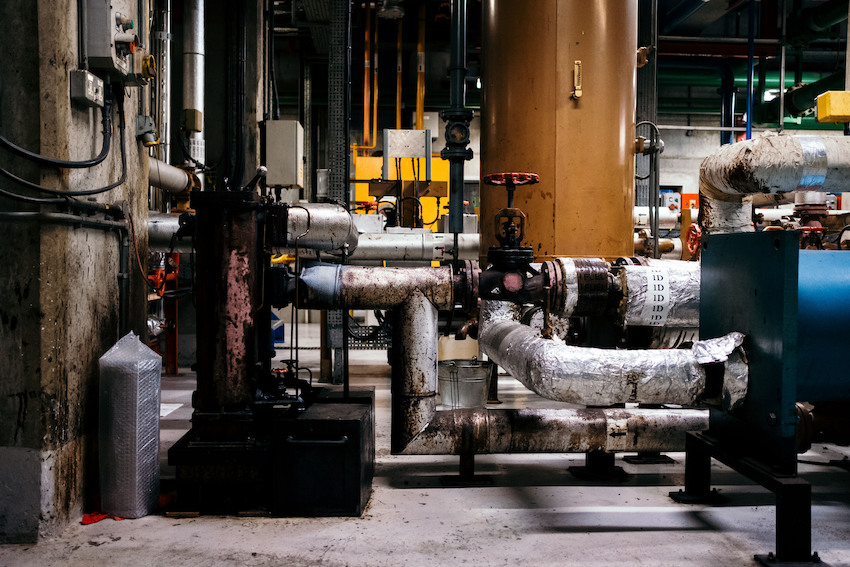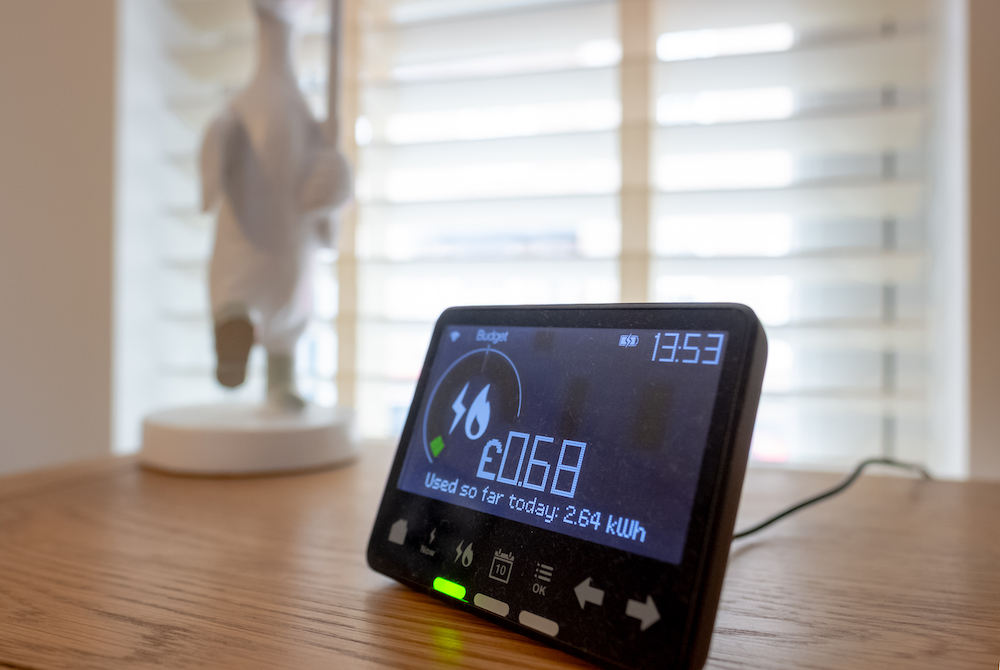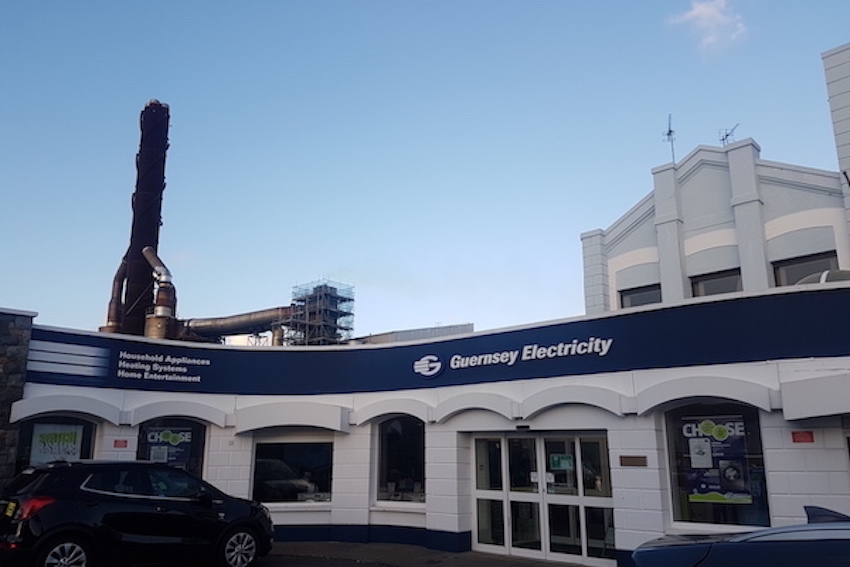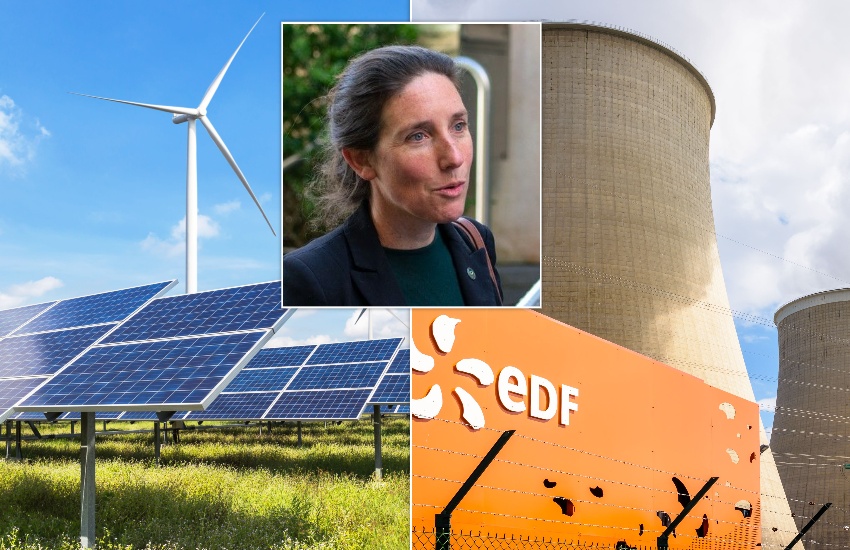


The energy crisis...you’d be forgiven for losing it in a long list of crises rattled off in the media, including housing, the cost of living, the financial black hole, climate change, nature loss, the demographic time bomb, health and social care, soaring inflation, geopolitical tensions and conflicts and various others.
How does it affect us here in Guernsey, and what can we do about it?
While we are not feeling the brunt of the energy crisis in quite the same way that other places are, it’s certainly true to say that we have some serious challenges and need to make some important decisions to address them – most urgently around electricity.

Pictured: Part of the infrastructure at Guernsey Electricity's power station.
Our demand for electricity is growing. That’s no bad thing in itself (and in some respects it’s a very good thing), but we need to meet that growing demand for electricity in an affordable, secure and sustainable way.
In the last year or two, the price of electricity around the world has increased sharply, thanks to a complex web of geopolitical and macro-economic factors. Although our prices have gone up, thanks to some fortuitous contractual arrangements we’ve actually been well insulated from the magnitude of price shocks seen elsewhere... so far, that is. I’m sorry to say it can’t and won’t last forever. Like other places, we will need to adjust to the fact that, for a time, electricity will cost us all more – although the transition to renewables provides a cost-effective long-term solution.
Part of the reason our electricity demand is increasing is simply because our population is growing; we all use electricity in our everyday lives, at home, at work and in many of our recreational activities too. Another reason is the wider trend where people are switching their heating, cooking and transport from hydrocarbons (such as oil and gas) to electricity.

Pictured: Electricity meters can track usage in the home.
If the whole island’s energy use were a pie, population growth is making that pie bigger, whilst energy efficiency improvements are working to make it smaller. However, whatever the size of the pie overall, the slice that is electricity is getting bigger all the time.
Most of our electricity comes through our subsea cable from France (via Jersey). However, that cable has a limited capacity and sometimes, when our island’s use of electricity is it at its highest – like at mealtimes on cold, dark winter days – demand outstrips what the cable can supply. That’s when the on-island oil-fired power station has to be fired up to provide additional electricity, during these peak times.
It’s no secret that our power station needs millions of pounds’ worth of investment, due to its ageing generators. So, with greater demand for electricity, why can’t Guernsey Electricity just crack on with upgrading its thermal plant?
Well, the simple answer is that there are a number of different approaches they can take, but to decide on which is the most appropriate they need a clear idea of what the States thinks is the best balance between affordability, security and environmental sustainability.

Pictured: Guernsey Electricity's power station and offices is at Northside in the Vale.
The difficulty is that affordability, security, and environmental impact are like a three-way tug of war which all pull in different directions. If you move in one direction, it has the potential to pull you away from the other two, and vice versa.
Everyone would probably agree that security and resilience are important but that comes at a cost: the more secure and resilient we make our electricity supply, the more the costs go up – which makes it less affordable.
Most would also agree that it’s important to limit the volume of air pollutants and carbon emissions that are generated by our oil-fired power station, and also understand that there is a global shift towards renewable energy which is much cleaner. However, the renewable sources that can (or could soon) be generated locally are variable in nature, because unlike an oil-fired generator wecan’t turn the sun or wind or tide or waves up and down at the touch of a button. The amount of electricity generated at any given time depends on external factors beyond our control, and the amount that can be dispatched to meet demand at any given time therefore depends on how much and how effectively we can store it until we need it.
As bills increase for customers (who are feeling the financial squeeze across the board) and the States’ fiscal black hole deepens, it’s more important than ever that we make sure whatever approach we take to meet this increased demand is as affordable and cost-effective as possible.
However, we certainly can’t afford either to ignore the shift internationally away from fossil fuels and towards decarbonisation. 195 member states (which includes nearly every country in the world, including the two biggest emitters – China and the USA) have signed up to the Paris Agreement, a UN treaty on climate change that aims to limit global temperature increases.

Pictured: Lindsay de Sausmarez is responsible for the States energy policies.
Guernsey has made policy commitments in line with the Paris Agreement and agreed the principle that it should be extended to us in our own right. Not only are those commitments important because of the decarbonisation they will achieve, they are also very important in terms of our status as a green and sustainable finance centre and to our ability, post-Brexit, to secure international trade agreements.
But enough talk of the problems and challenges. Our job in the States is to find and agree solutions, and that’s why we’ve been working closely with political colleagues, the local energy industry, the business sector and energy experts to develop an Electricity Strategy that will provide the best balance between those three core but competing objectives of affordability, security and sustainability.
The strategy looks at supply, demand and market structure, in both the immediate and longer-term, to provide a balanced and effective way forward to meet our future needs.
This strategy will also provide clarity to businesses who want to provide energy to islanders, giving them the reassurance that there is fair competition and the confidence to invest in the island.
The Electricity Strategy that we will bring to the States will set out a pathway that meets the objectives in the most cost-optimal way. While there will be plenty more work to do before the States will be presented with any specific investment decisions, one of the strategy’s strengths is that it is flexible enough to adapt to different circumstances as they evolve, and to adapt to advances in technology. If the States can agree a way forward through the Electricity Strategy, that’s at least one significant problem that we’ll be doing something about, and one crisis we can therefore hopefully cross off the list of those we need to worry about.
OPINION: "Island needs accurate information about energy policy"
OPINION: "The States must wake up on energy and the environment
E&I President astonished by GPEG's scathing criticism of energy policy
Alderney "working together with Guernsey" on renewable energy
The energy transition: What is the regulator's role?
LISTEN: Scoping reports on renewable energy "makes the compelling case" for acting now
Independent group of deputies to unveil renewable energy ideas